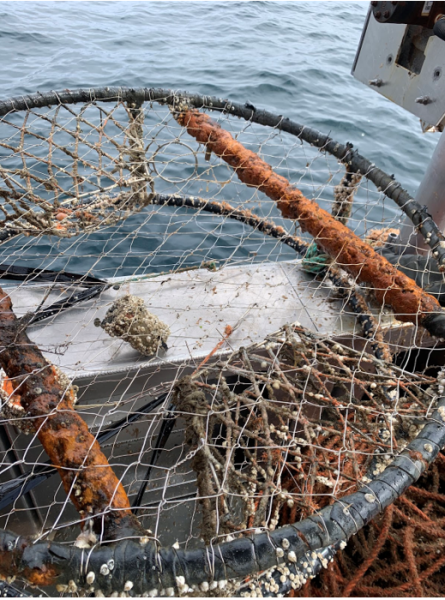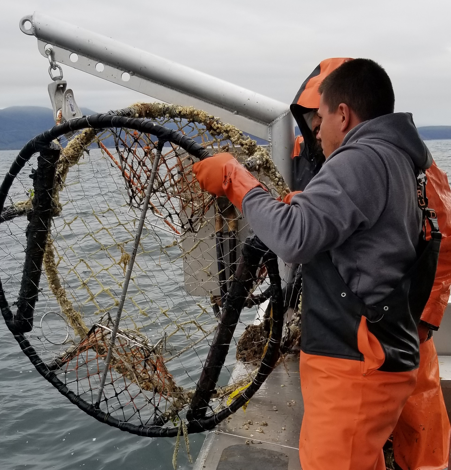In celebration of National Native American Heritage Month, the NOAA Marine Debris Program is highlighting our collaboration with native communities, nations, and peoples.
Native Americans have lived on these lands since time immemorial. Their roots are deeply embedded in the land, waters, and genealogy of this place. During National Native American Heritage Month we celebrate the countless contributions of Native peoples, their important history, present perseverance, and future. The NOAA Marine Debris Program is proud to work with indigenous communities in stewardship efforts that help to understand and reduce the impacts of marine debris. One such project, with the Makah Tribe, focused on the removal of derelict fishing gear within the Olympic Coast National Marine Sanctuary, along the northwest corner of the Olympic Peninsula in Washington State and the Makah Tribe’s Usual and Accustomed Fishing Area.
Derelict fishing gear refers to nets, lines, crab/shrimp pots, and other recreational or commercial fishing equipment that has been lost, abandoned, or discarded in the marine environment. Derelict fishing gear has numerous impacts including ghost fishing, risks to navigation, habitat damage, and interference with active gear from fisheries, such as salmon fishing. Representing roughly 50% of their economy, fishing is a vital industry for the Makah Tribe both culturally and economically. Ghost fishing has negative impacts to this important Tribal resource, further heightening the need to remove derelict fishing gear from the environment. The Makah Tribe set out to meet the challenge of this type of marine debris in their home waters.

The Makah Tribe Fisheries Management, in collaboration with the Makah Resource Enforcement, recently completed a project to locate and remove derelict crab pots. Initial plans to use a fixed-wing aircraft to identify and locate derelict crab pots proved unsuccessful. As a result, the Makah Tribe partnered with Tribal fishermen to crowdsource information on the location of lost crab pots within the project area. The location of the derelict pots were mapped and crews worked to recover crab pots by securing the line the pots were attached to, and pulling them aboard using a mechanical winch, as a crabber would recover their active fishing gear. If located crab pots were buried too deeply in the sediments to be removed, their float lines were cut to eliminate the risk of wildlife entanglement.

This project resulted in the removal of approximately 7,000 pounds of pots and lines, as well as two drift nets from the Makah Tribe’s Usual and Accustomed waters. The Makah Tribe is also a participant in the Washington Marine Debris Action Plan, and this project supports several actions from the Action Plan. By directly partnering with local Tribal fishermen to expand derelict fishing gear detection, they increased awareness about the impacts of lost fishing gear and how to prevent it in the future.
Supporting indigenous communities in environmental protection practices is essential to honoring their enduring relationship to their homeland. We are appreciative of the opportunities to collaborate with native communities, nations, and peoples on marine debris projects, and celebrate them always.

Thank you so much to the people of the Makah Tribe for their vital stewardship of their homeland.